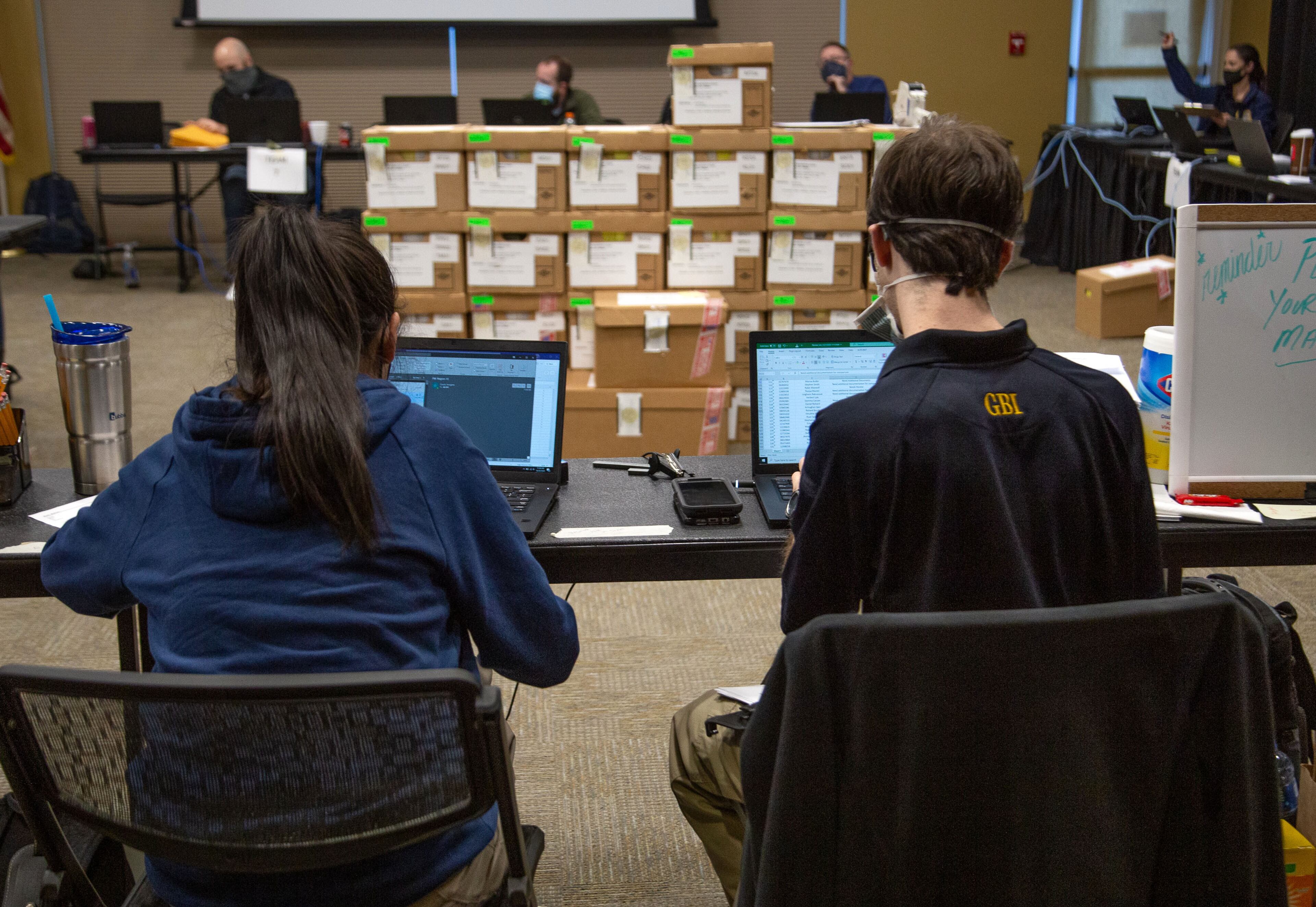Georgia lawmakers seek absentee ID requirement after signature test

Before Georgia’s runoffs, two Republican legislators tried to expose a gap in absentee ballot security by changing how they wrote their signatures on ballot application forms.
Even with the altered signatures, they received absentee ballots.
They say their experiment showed a flaw with absentee ballot verification: If election workers had thoroughly checked voter signatures, their ballot requests could have been rejected.
While there’s no indication of widespread voter fraud, Republican lawmakers plan to introduce legislation that would eliminate signature matching when verifying absentee ballots, saying it’s an unreliable way of ensuring that ballots go to the voters who requested them. They want to replace signatures with photo ID or an identification number.
Republicans oppose signature matching because they say it doesn’t prevent election tampering. Democrats have also objected to signature verification in the past when ballots were incorrectly rejected, but they oppose proposed photo ID requirements, such as a photocopy of a driver’s license, that could make it harder to vote.
State Rep. Wes Cantrell, a Republican from Woodstock, said he used different signatures on both his absentee ballot application and when returning his absentee ballot to try to prove a point that signature verification doesn’t work.
“The primary way that we verify voters’ identity is just silly,” Cantrell said. “I’m alleging a flaw, not fraud. It’s not workable, and we’ve got to find a better way.”

The signature verification process also failed a similar test by state Sen. Greg Dolezal, a Republican from Cumming, whose signature on his ballot request form was much clearer than the scrawled signature on his driver’s license.
“For all intents and purposes, signature match doesn’t exist,” Dolezal said. “Regardless of what you think happened in the last election, we can acknowledge this isn’t the best way.”
Election officials said they approved Dolezal’s ballot after finding similarities between multiple signatures on file and how he signed the last letter of his last name on his absentee application.
A broader review of absentee ballots didn’t reveal any ineligible voters. GBI agents and elections investigators audited 15,000 absentee ballot envelopes last month in Cobb County without detecting a single case of fraud. The audit found 10 absentee ballots where voter signatures didn’t match or signatures were missing, but those voters later confirmed they had submitted those ballots.

Democrats are prepared to fight limitations on absentee voting, especially a proposal from Republican Gov. Brian Kemp that would require voters to return a copy of their ID with their absentee ballot. Many voters, especially the poor or the elderly, don’t have easy access to a copy machine.
“This is simply about Republicans finding ways to toss out votes,” said state Rep. Renitta Shannon, a Democrat from Decatur and a member of the committee that reviews election legislation. “We never saw this much focus on absentee voting until Democrats, especially Black and brown voters, started using absentee ballots in large numbers. It’s one of the more secure processes we have.”
Georgia has allowed any registered voter to cast an absentee ballot for any reason under a law passed by the Republican-controlled General Assembly in 2005. But until last year, absentee voting was only used by about 5% of voters in general elections.
That changed during the coronavirus pandemic, when many voters decided to cast their ballots remotely rather than risk human contact at polling places. A record 1.3 million people voted absentee in the general election.
Absentee ballot rejection rates because of mismatched or missing signatures were low both in prior years and in 2020, usually hovering between 0.1% and 0.3%.
Almost every state uses some form of signature verification for absentee voting, according to the National Conference of State Legislatures.
States including South Dakota and Wisconsin also require voters to submit photo ID with their absentee ballots. In Ohio, voters must provide their signatures along with a driver’s license number, Social Security number or a photo ID when requesting an absentee ballot.
Georgia’s signature verification could be improved without discarding it, said Amber McReynolds, CEO for the National Vote at Home Institute, an organization that promotes mail-in voting. For example, she suggested implementing signature verification software, bipartisan signature review panels and greater transparency of the process.
“Signature match is used widely and successfully in many states. Right now, it’s the best available method for validating a mail ballot,” McReynolds said. “My concern about Georgia going down the path of requiring photo ID is it requires the voter to have a copy machine or access to that at home, and that presents an accessibility problem.”
While Kemp has called for photo ID, other options will also be considered by the General Assembly that might be more likely to withstand potential court challenges.
“Other states do driver’s license, state ID or Social Security number as a specific identifier that is binary, as opposed to having a signature match, which can be viewed as subjective and kind of undermines people’s faith in the system to a degree,” said Gabriel Sterling, chief operating officer for the secretary of state’s office.
Even though absentee voting fraud is rare, more reliable methods of signature verification would help restore voters’ shaken trust in elections, Dolezal said.
“We need to do what we can to restore confidence,” he said. “The question is how to set up a structure that really takes out as much human error as possible.”



